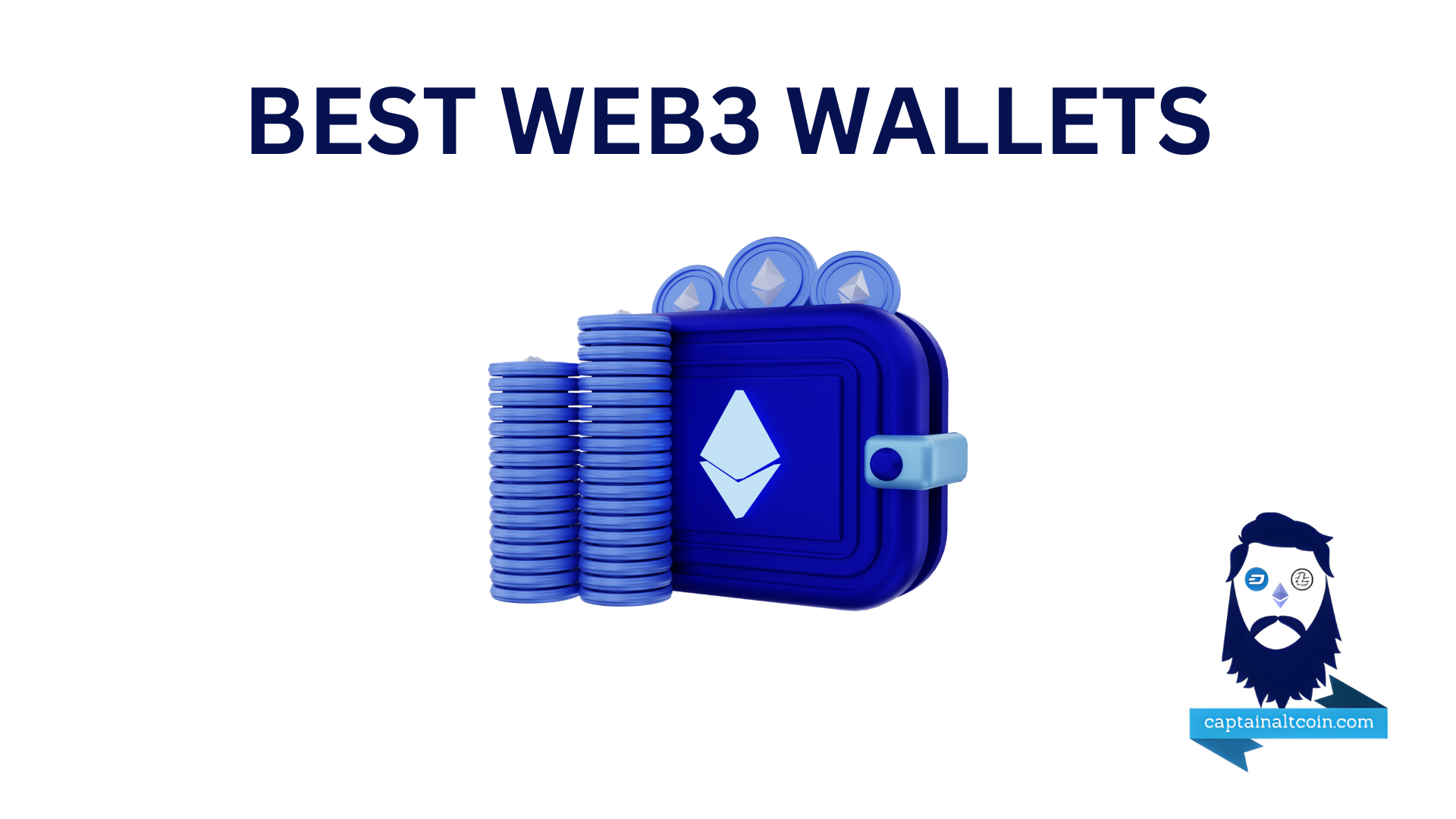
Web3 wallets are essential tools for users interested in the decentralized world of cryptocurrencies, digital assets, and decentralized applications (dApps).
These wallets allow users to store, manage, and interact with various digital assets, including NFTs and tokens, on multiple blockchains. Selecting the best wallet depends on individual needs, preferences, and intended use.
Here are some of the top Web3 wallets available, based on user feedback and recommendations:
What you'll learn 👉
MetaMask
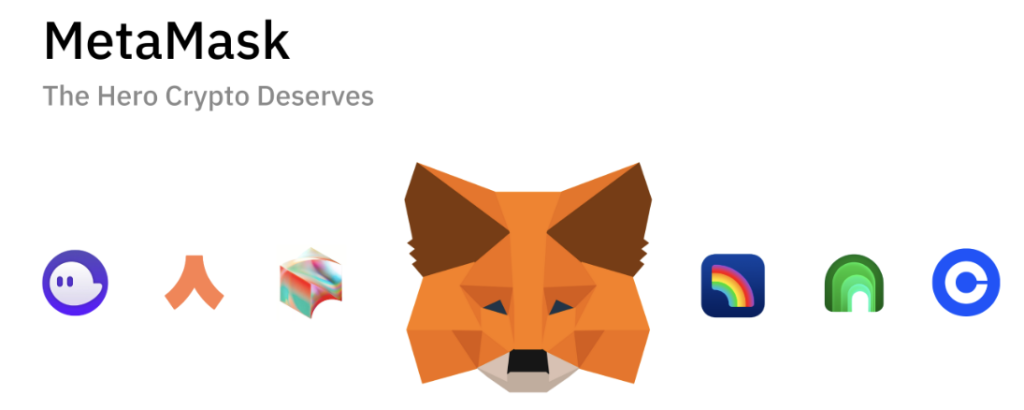
MetaMask: A popular web3 wallet available as a browser extension for Chrome, Firefox, and Brave, allowing users to interact with dApps and manage their crypto assets directly from their browser.
MyCrypto
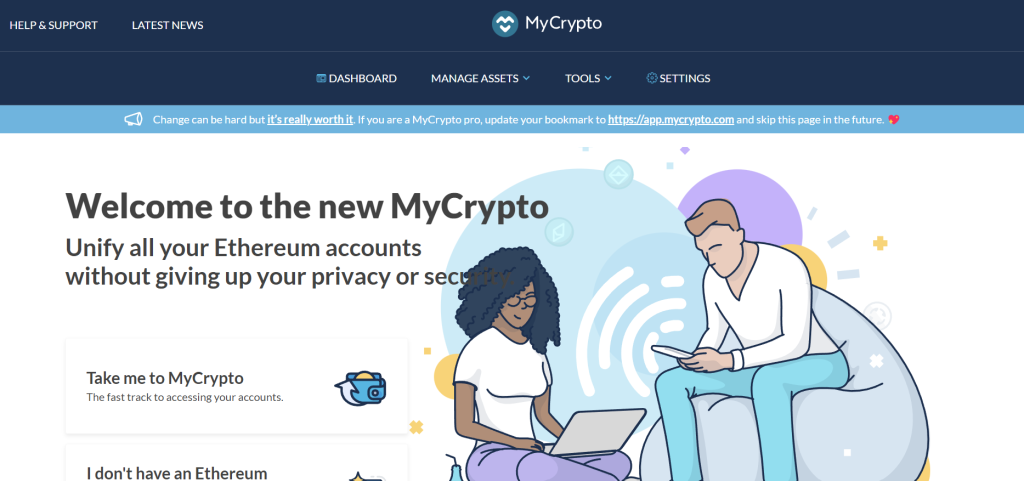
MyCrypto: A secure and user-friendly open-source wallet for managing Ethereum, ERC-20 tokens, and other digital assets. It is available as a desktop application, a web app, and also includes an official mobile wallet.
It allows users to interact with dApps, securely store their funds offline in a hardware wallet or paper wallet, and manage their digital assets with a user-friendly interface.
Trust Wallet
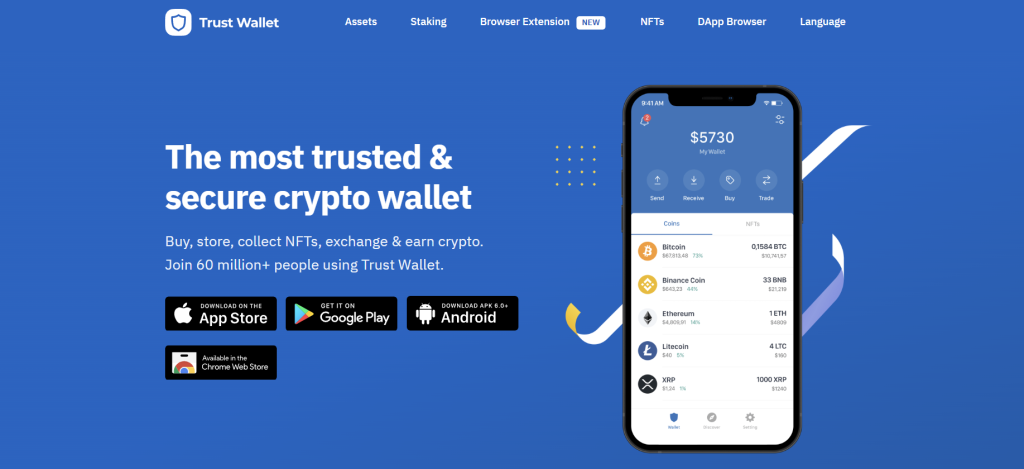
Trust Wallet: A mobile wallet available on both iOS and Android, allowing users to store and manage their crypto assets securely.
It provides access to a variety of decentralized applications, in addition to support for multiple blockchains, such as Ethereum, Binance Smart Chain, Solana, Polkadot, etc.
MyEtherWallet
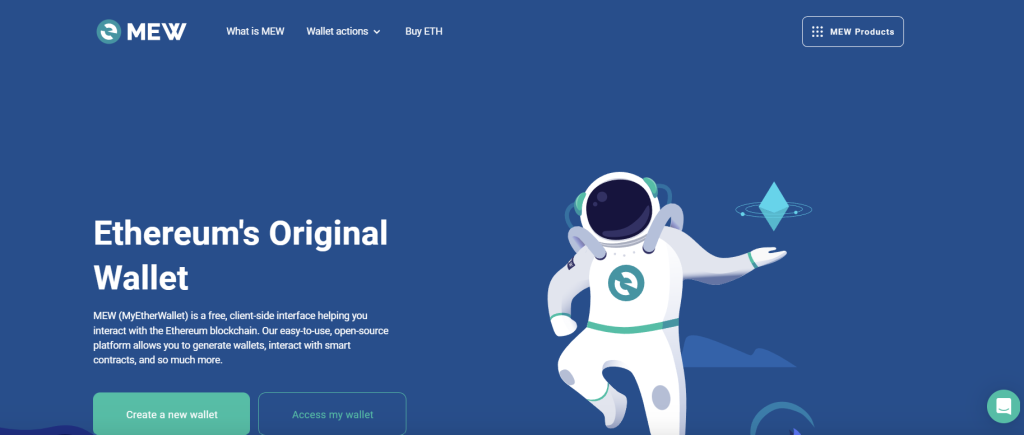
MyEtherWallet (MEW): An open-source, client-side interface that supports multiple cryptocurrencies and allows users to interact with dApps directly from the wallet.
Coinbase Wallet
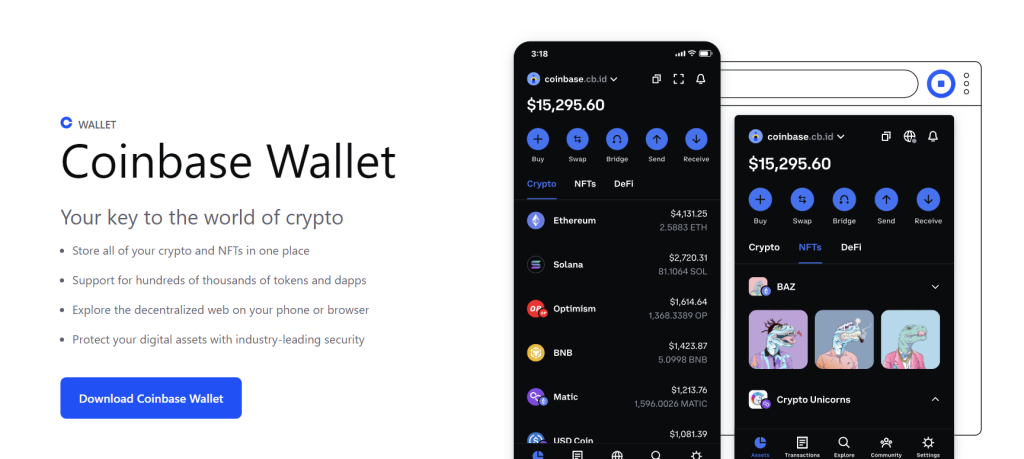
Coinbase Wallet: A mobile wallet allowing users to store, manage, and interact with their crypto assets. It supports multiple cryptocurrencies and allows users to buy and sell directly from the wallet.
Guarda Wallet
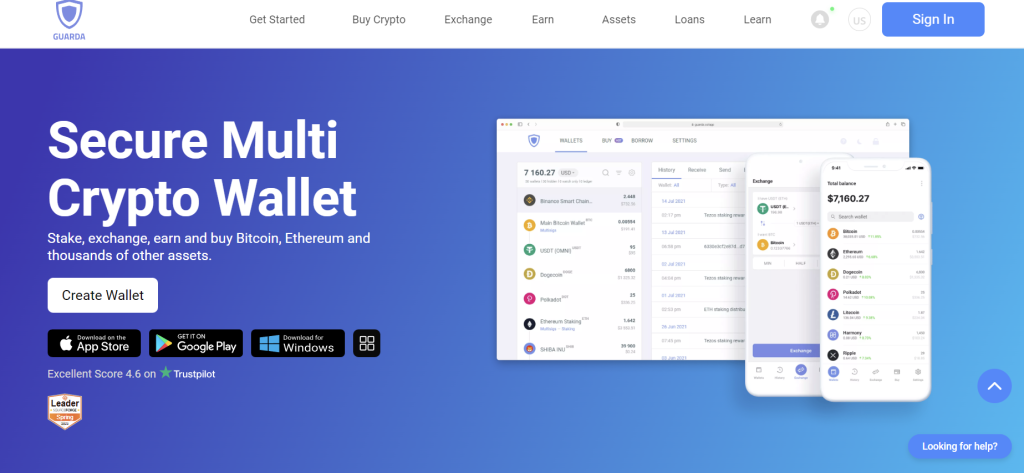
Guarda Wallet: A multi-currency wallet supporting over 40 different blockchains, available on desktop and mobile devices.
Bitizen Web3 Wallet
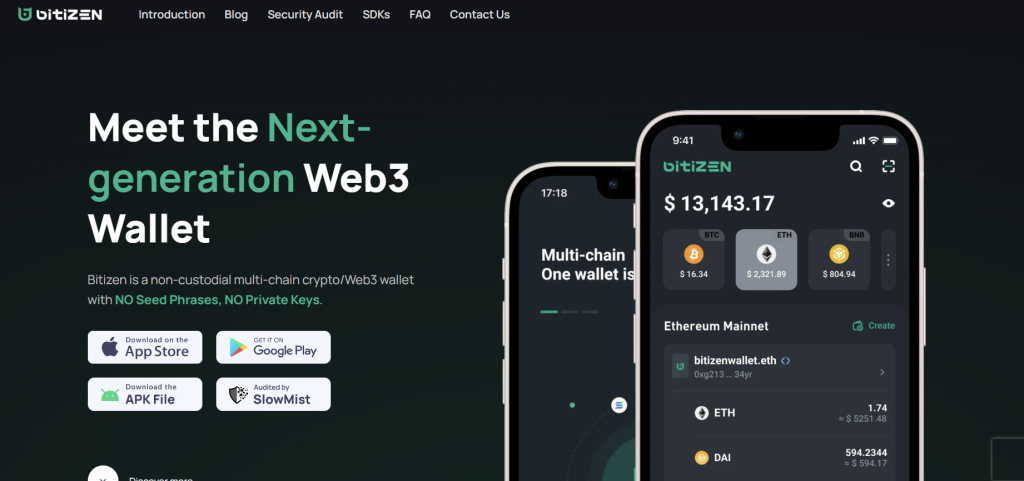
Bitizen Web3 Wallet: A multi-party computation (MPC) keyless and seedless wallet, providing a smooth and safe web3 browsing experience. It supports thousands of dApps, games, and NFTs on all major chains.
Rainbow
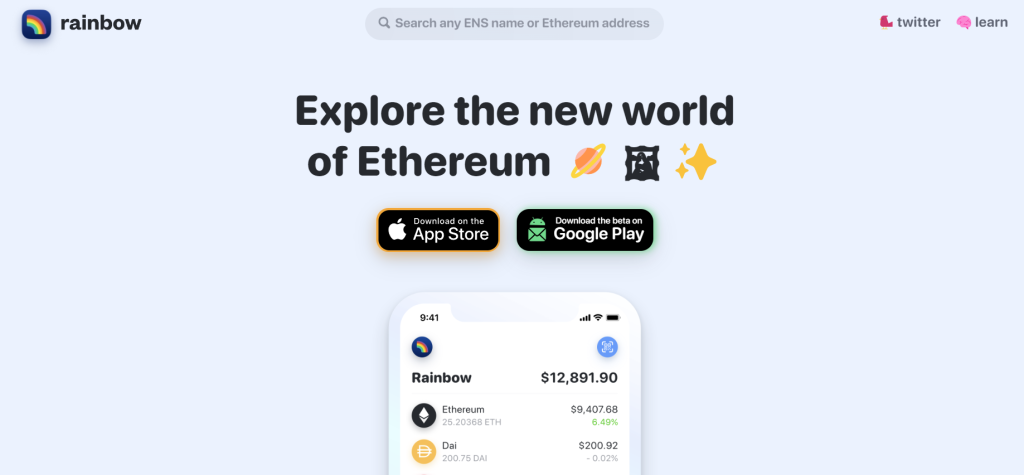
Rainbow: A non-custodial Web3 wallet that can be used as an app or a browser extension, supporting multiple blockchains, including Ethereum and Binance Smart Chain.
Argent
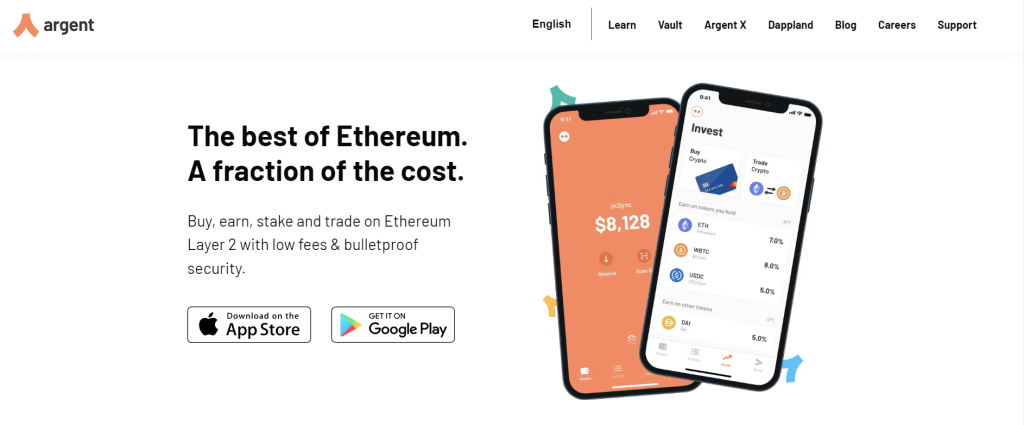
Argent: A mobile Web3 wallet focused on DeFi and NFT applications, known for improved security and scalability features, supporting multiple blockchains, including Ethereum and Polygon.
Unstoppable Wallet
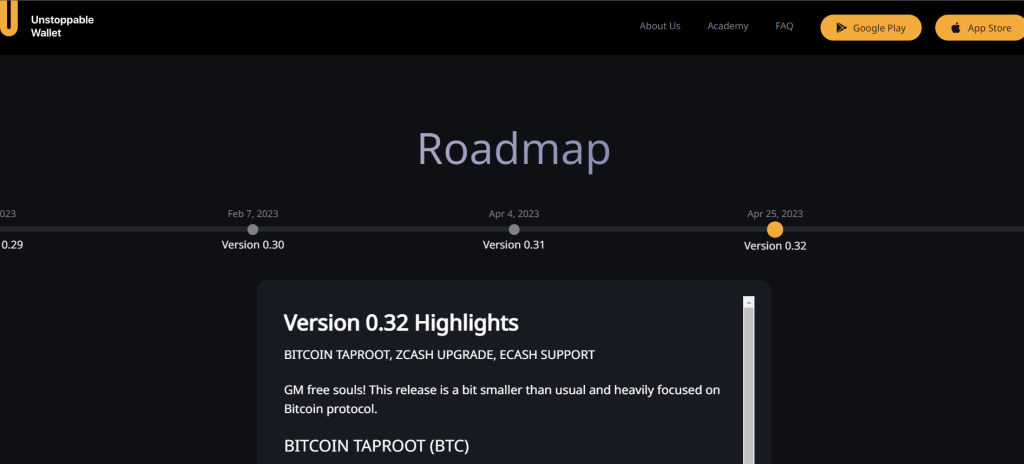
Unstoppable Wallet: An open-source wallet supporting multiple blockchains, including BTC, ETH, and Binance. It features TOR, VPN, and Walletconnect integration, making it a popular choice for its security and features.
Sylo Wallet
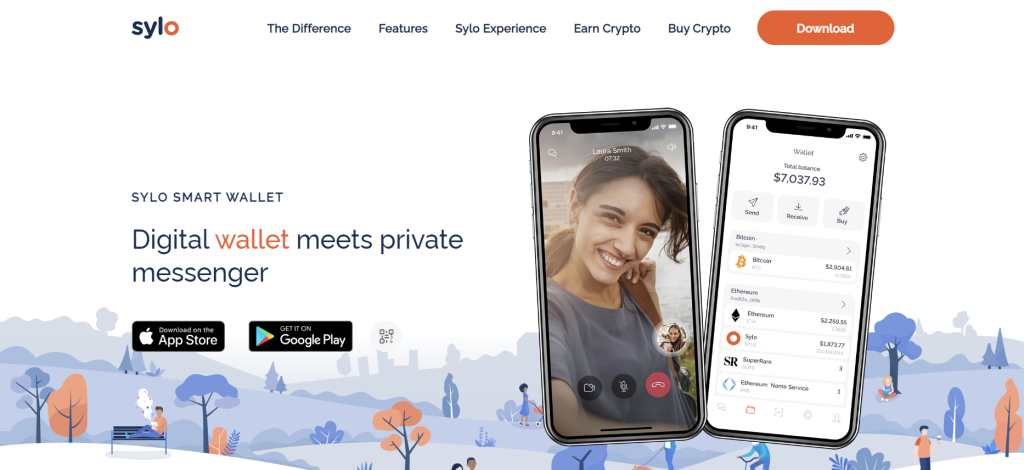
Sylo Wallet: A decentralized, multi-chain, non-custodial smart wallet with Ethereum dApps. It offers various DeFi features like staking, NFTs, a decentralized messenger, and upcoming incentives nodes.
Rabby

Rabby: Powered by Debank integration, this wallet offers a portfolio overview, remembers the chain, and allows users to seamlessly switch between tabs. It also verifies transactions with a security check.
Xdefi Wallet
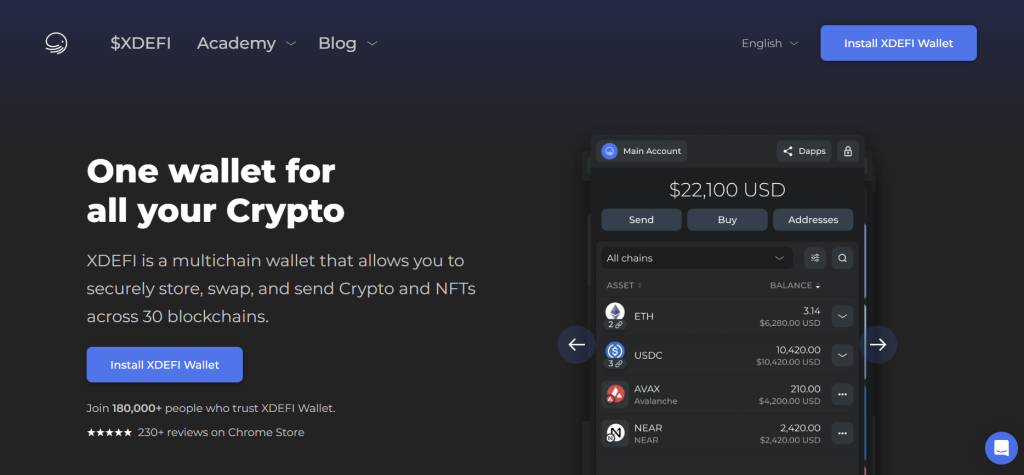
Xdefi Wallet: A multi-chain wallet supporting multiple blockchains, including BNB, BSC, BTC, and ETH. It allows native swaps and is highly recommended by users.
ZenGo
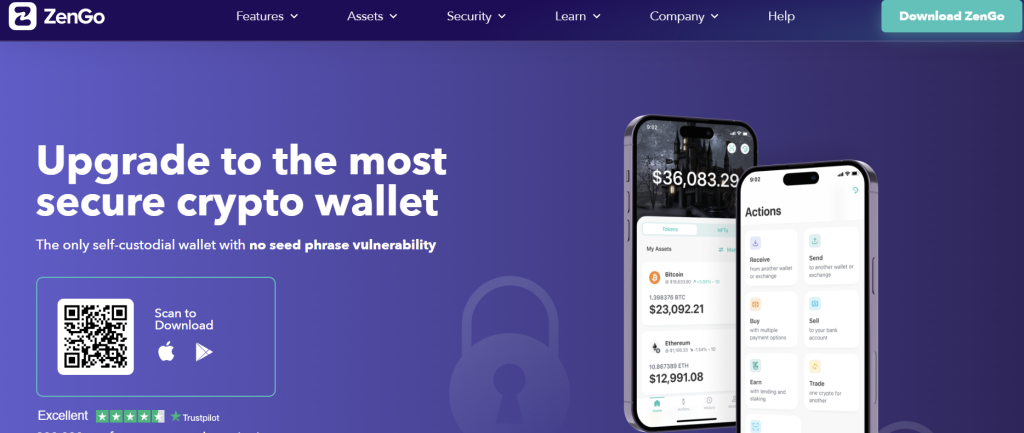
ZenGo: A highly secure wallet powered by MPC cryptography, offering a 3-factor wallet recovery system leveraging encrypted facial biometrics and 24/7 in-app support.
Hardware wallets in combo with other web3 wallets
No web3 wallet is entirely safe, and users should take extra precautions to secure their assets. Hardware wallets are recommended for a high degree of safety. Additionally, users should research, start small, diversify, and trust no one.
How To Choose The Best Web3 Wallet
When choosing a web3 wallet, consider factors such as security, ease of use, supported cryptocurrencies, and compatibility with preferred dApps. Ensure that the wallet is reputable and has a good track record of security. Experiment with different wallets to find the best fit for your needs and requirements.
The best web3 wallet for you depends on your intended use and personal preferences. The above-listed wallets are some of the most popular and well-regarded options in the market, providing a solid foundation for engaging with the decentralized world and creating a fair and open internet.
In addition to the wallets mentioned above, other notable web3 wallets include Ledger Nano S, Trezor, Exodus, and Atomic Wallet. These wallets come in different types, such as software wallets, hardware wallets, and paper wallets. Each type has its advantages and disadvantages, and users should choose the type that best fits their needs.
Best Practices When Using Web3 Wallets
To further secure your assets, consider the following best practices:
- Regularly update your wallet software to ensure you have the latest security features.
- Enable two-factor authentication (2FA) if available.
- Use strong, unique passwords and avoid reusing passwords across different platforms.
- Keep your private key and seed phrase secure and never share them with anyone.
- Be cautious of phishing scams and only download wallet software from official sources.
- Store significant amounts of crypto on hardware wallets, and use software wallets for daily transactions and smaller amounts.
- Regularly back up your wallet, and keep multiple copies of your backup in safe and secure locations.
Conclusion
In conclusion, the world of web3 wallets offers a variety of options for users to securely store, manage, and interact with digital assets and decentralized applications.
By considering factors such as security, ease of use, supported cryptocurrencies, and dApp compatibility, users can find the perfect wallet to suit their needs. Remember to follow best practices to ensure the security of your digital assets and enjoy the benefits of the decentralized ecosystem.






